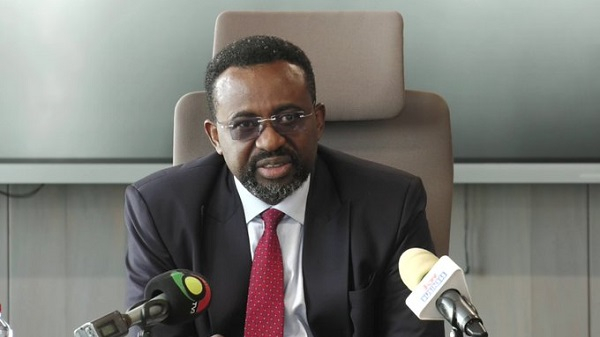Mr. Minister,
The heartbeat of every thriving economy is a skilled workforce. A nation that prioritises technical and vocational education and training (TVET) sets itself on a path of economic prosperity. Yet, Ghana’s TVET sector remains undervalued, underfunded, and stigmatized, depriving our nation of the skilled labour force necessary for sustainable development. It is time for the government to take decisive action, ensuring that within four years of strategic investment, TVET becomes the bedrock of Ghana’s industrialization agenda.
Imagine a Ghana where every young person, regardless of background, possesses the skills to create, innovate, and transform society. Picture a country where industries flourish because the workforce is well-equipped to meet their demands. This vision is not far-fetched but within reach, but only if we dare to act decisively. The time for empty rhetoric has passed; we must lay the foundation for a future built on skill, creativity, and economic resilience.
Countries that have prioritised TVET have witnessed remarkable economic transformation, which Ghana must draw some inspiration from:
Germany’s “dual system” integrates classroom instruction with hands-on apprenticeship training, ensuring that over 50% of its young people graduate with industry-ready skills. This approach has kept youth unemployment at a record low of 5.7% in 2023. Ghana can replicate this model, fostering stronger industry-education partnerships to bridge the skills gap.
In the 1960s, South Korea revamped its TVET policies, linking them directly to industrialisation. Today, over 30% of high school graduates enroll in TVET programs, fueling the success of global brands like Samsung and Hyundai. By aligning TVET curricula with emerging industries such as renewable energy, agribusiness, and digital technology, Ghana can create a workforce ready to drive economic growth.
In Africa, Rwanda’s National Employment Program (NEP) has increased TVET enrollment from 31% in 2014 to 51% in 2022, reducing youth unemployment and strengthening sectors such as ICT and manufacturing. Ghana must follow suit by fostering government-industry collaborations to make TVET more attractive and accessible.
Despite institutions like the Council for Technical and Vocational Education and Training (COTVET), Ghana’s TVET sector remains largely neglected. There is a perception that vocational training is a last resort for those who struggle academically. Additionally, a critical mismatch exists between TVET curricula and industry needs, leaving many graduates ill-equipped for the job market. Without modern equipment, practical training, and strong industry ties, Ghana risks producing graduates who lack the necessary skills for today’s economy.
Ghana can reap the benefits of TVET within four years by adopting the following strategies:
- Policy Formulation and Implementation
A comprehensive national TVET policy must align with Ghana’s industrialisation goals, setting clear targets for enrollment, curriculum reform, and industry partnerships. - Funding and Infrastructure Development
A minimum of 5% of the national education budget should be allocated to TVET. Modern training centers equipped with state-of-the-art technology must be established to provide hands-on learning experiences. - Industry-Academia Collaboration
Apprenticeship and internship programs should be established between TVET institutions and industries to ensure students graduate with practical experience. Incentives must be provided to industries that hire TVET graduates. - Changing Public Perception
A nationwide campaign must rebrand TVET as a prestigious career path. Scholarships, awards, and the success stories of TVET graduates should be widely publicised to encourage enrollment. - Integration of Digital and Green Skills
Ghana’s TVET programs must incorporate ICT, artificial intelligence, renewable energy, and eco-friendly construction skills to remain relevant in the global economy.
Honourable Minister, the government must provide the necessary funding and policy direction. The private sector must actively participate in training and hiring skilled TVET graduates. Civil Society and the Media must champion TVET advocacy to transform public perceptions. Parents and students must recognise vocational education not as a fallback option, but as a gateway to lucrative and fulfilling careers.
A skilled Ghana is a prosperous Ghana. Investing in TVET is not merely an option; it is an urgent necessity for national transformation. Let us rise to the occasion and take bold steps today to secure a brighter tomorrow. The future beckons. Will we answer the call?
Written by Abdul Rafiiu Alhassan










